Indian cuisine, including the dishes at Chef Bombay, is well-known for its use of flavorful spices, which not only add unique taste and aroma to the dishes but also provide a range of health benefits. In this article, we will explore some of the most popular Indian spices used in traditional Indian cuisine as well as some of their health benefits.
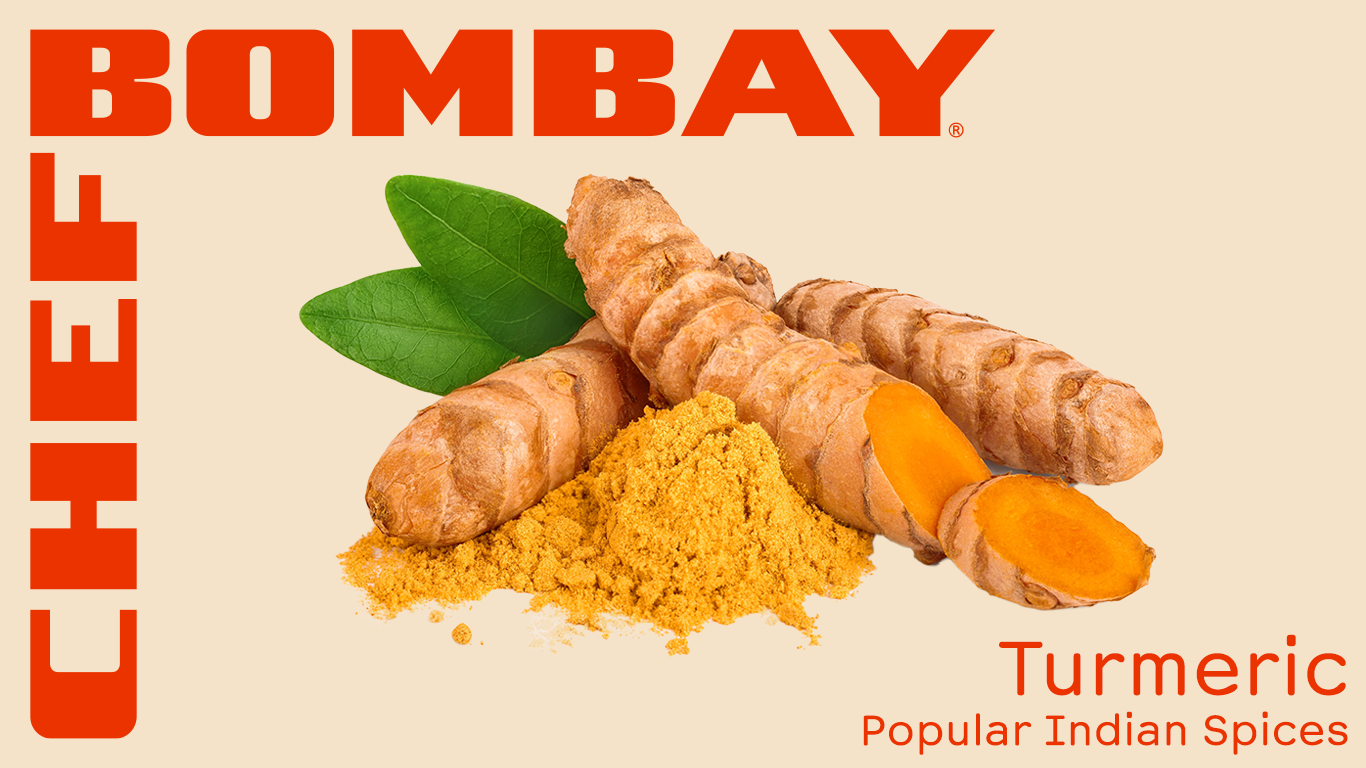
Turmeric
Known for its anti-inflammatory properties, turmeric is a staple spice in Indian cooking. It is not only known for its vibrant yellow color, but also for its numerous health benefits. Turmeric is a member of the ginger family and contains a powerful antioxidant called curcumin. This antioxidant is believed to have strong anti-inflammatory properties, making it a popular choice for natural pain relief and as a natural remedy for arthritis.
Turmeric has also been found to have a positive impact on brain function. Studies have shown that curcumin can increase levels of brain-derived neurotrophic factor (BDNF), a hormone that is responsible for the growth and development of neurons in the brain. Higher levels of BDNF have been linked to improved brain function, memory, and a reduced risk of brain diseases such as Alzheimer's.
When it comes to Indian cuisine, turmeric is a staple spice and is used in a variety of dishes including curries, rice dishes, and soups. One of the most popular dishes made with turmeric is the traditional Indian dish, chicken tikka masala, which is made with a blend of spices including turmeric, cumin, coriander, and garam masala. Another popular dish is the vegetarian curry, aloo gobi, which is made with potatoes, cauliflower, and a variety of spices including turmeric, ginger, and cumin.
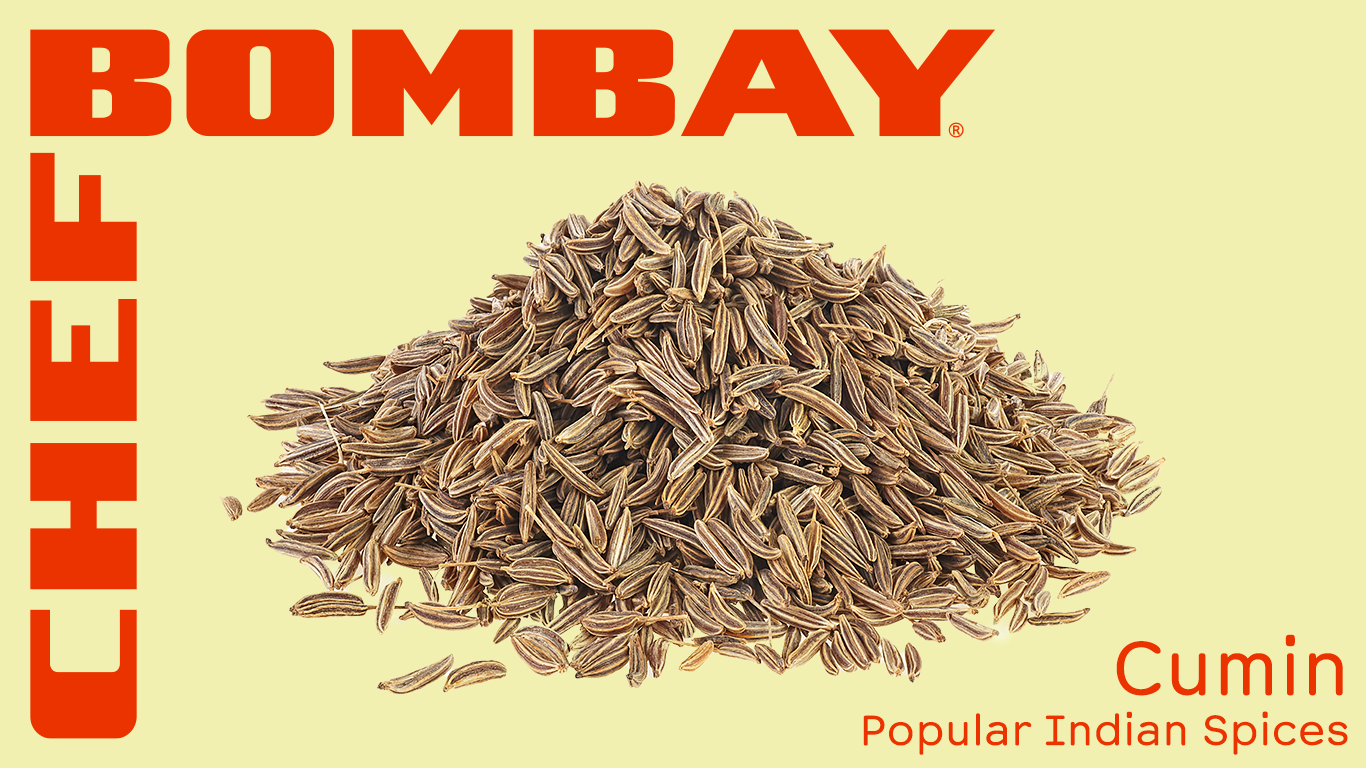
Cumin
Cumin seeds are a popular spice used in Indian cuisine. They add a warm and earthy flavor to dishes like curries, soups, and lentils. Cumin seeds are also known for their digestive benefits and are believed to aid in digestion and relieve bloating.
In addition to their flavor and digestive benefits, cumin seeds are also rich in nutrients. They contain iron, which is essential for red blood cell production and helps in the treatment of anemia. Cumin seeds are also a good source of antioxidants, which help protect cells from damage caused by harmful molecules known as free radicals.
In Indian Ayurvedic medicine, cumin seeds have been used for centuries to treat a variety of ailments. They are believed to have antibacterial properties, which may help fight infections. Cumin seeds are also thought to have a cooling effect on the body and are sometimes used to alleviate symptoms of heatstroke and fever.
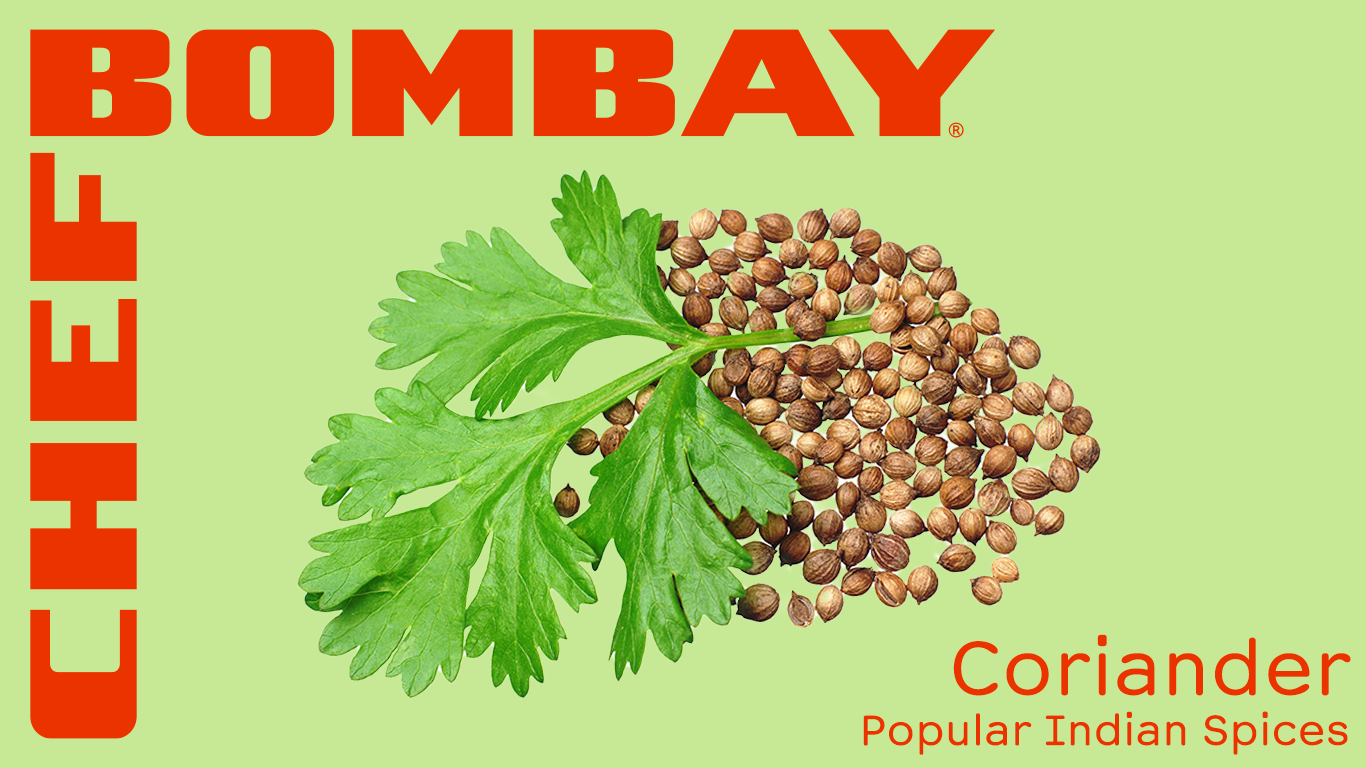
Coriander
Coriander seeds are commonly used in Indian cooking and are a key ingredient in spice blends like garam masala. Coriander has antioxidant properties and is believed to help lower cholesterol levels, improve digestion, and boost the immune system.
Coriander seeds are also used for medicinal purposes. The oil extracted from coriander seeds is often used in aromatherapy to help alleviate stress and anxiety. Coriander seeds also contain compounds that have anti-inflammatory properties and are believed to help improve skin health.
In Indian cooking, coriander seeds are typically roasted and ground to make a powder that can be used as a seasoning in various dishes. They are often used in combination with other spices like cumin and turmeric to create flavorful curries, stews, and rice dishes. Coriander seeds have a subtle, citrusy flavor that pairs well with many different ingredients, making it a popular spice in Indian cuisine and beyond.
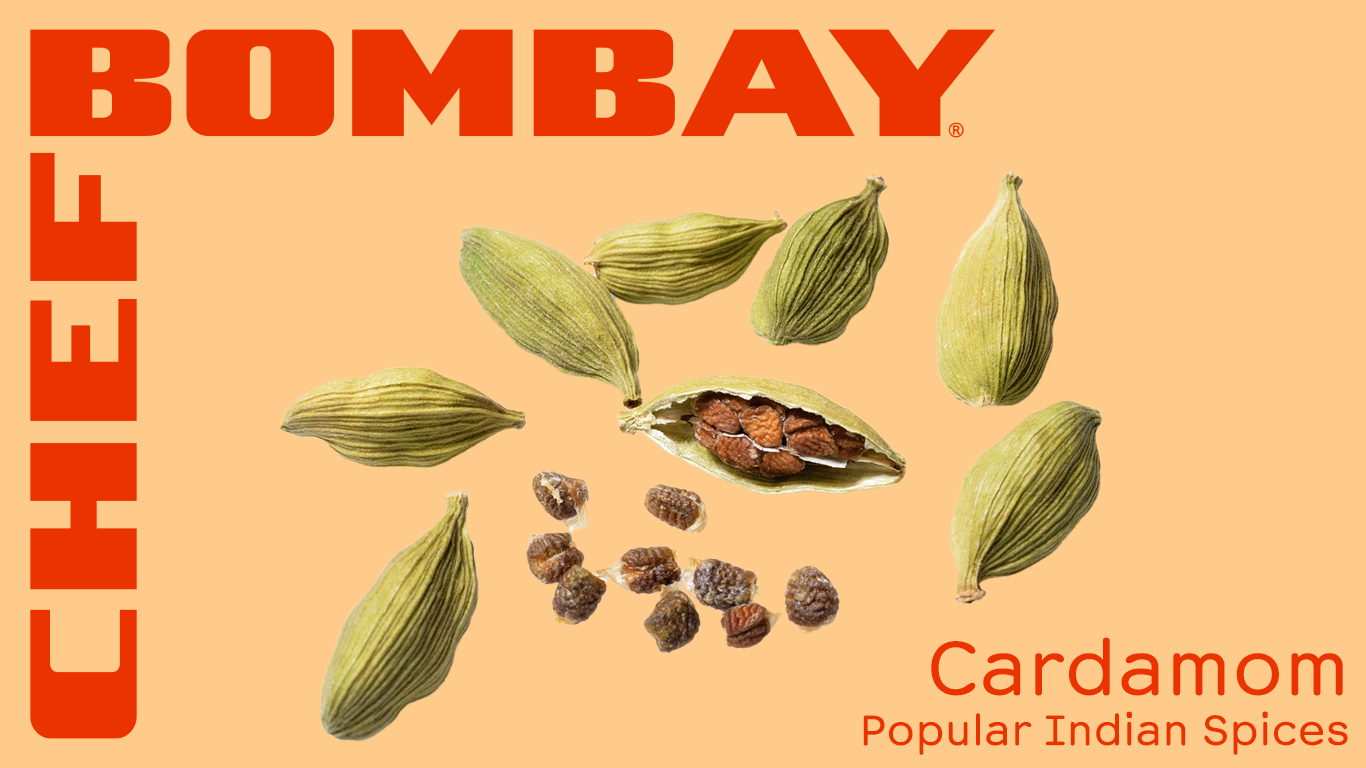
Cardamom
Cardamom is a popular spice used in many Indian meals and is often found in sweet and savory dishes. It is commonly used in Indian desserts like kheer and gulab jamun to add a unique, floral flavor. In savory dishes, it is often used in biryanis and curries. Cardamom is also used in Indian tea or chai, which is a popular beverage consumed throughout the day.
Apart from its culinary uses, cardamom is also known for its potential health benefits. In Ayurveda, the traditional Indian system of medicine, cardamom is used to treat a variety of ailments such as digestive issues, bad breath, and respiratory problems. Studies have shown that the essential oils found in cardamom may have antioxidant and anti-inflammatory properties. In addition to this, cardamom has been found to potentially have anti-cancer properties and may help lower blood pressure and cholesterol levels.
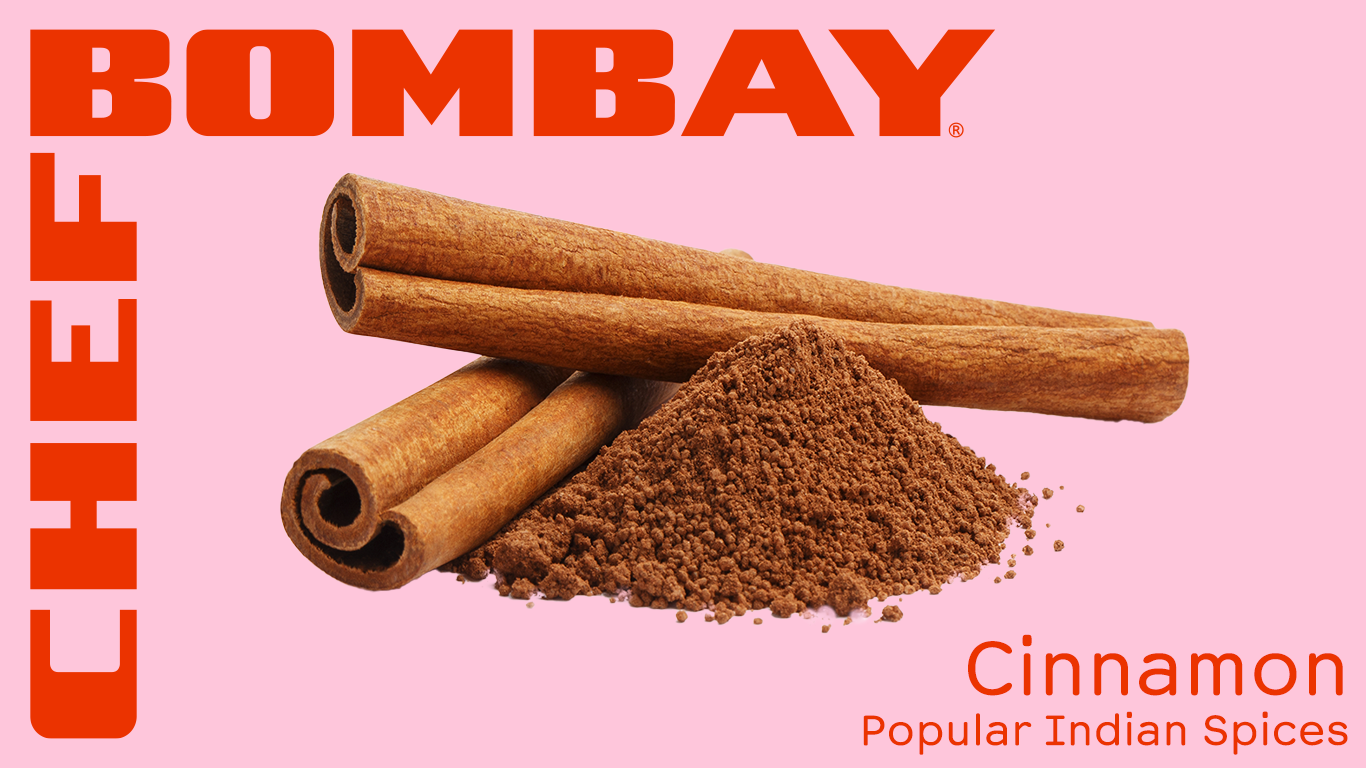
Cinnamon
Cinnamon's unique flavor and aroma make it a popular ingredient in many sweet and savory Indian dishes. One of the most popular sweet dishes in India that uses cinnamon is kheer, a creamy rice pudding that is often served during festivals and special occasions. The aromatic spice can also be found in some lassi recipes, a traditional yogurt-based drink that is popular in North India and is often flavored with cinnamon.
In addition to its flavor profile, cinnamon is also believed to have several health benefits. Its high levels of antioxidants may help protect the body from oxidative damage caused by free radicals, and it has also been shown to have anti-inflammatory properties. Studies suggest that cinnamon may help regulate blood sugar levels and may be beneficial for people with type 2 diabetes. Some Indian dishes, like Chef Bombay's Butter Chicken, are a great way to incorporate this spice into your diet and reap its health benefits.
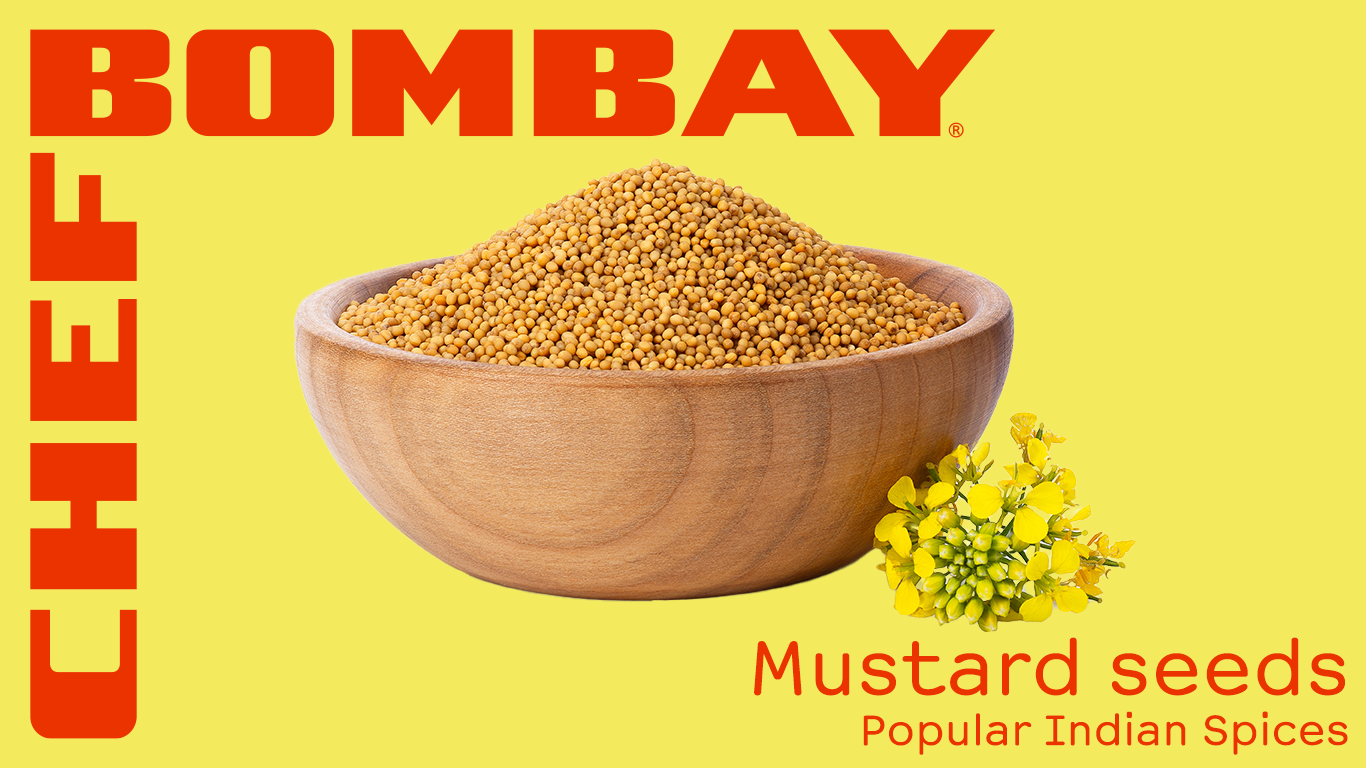
Mustard seeds
Mustard seeds come in three different colors: black, brown, and yellow. Yellow mustard seeds are the mildest of the three and are commonly used in pickling and in masala blends. Brown mustard seeds are a bit spicier and are used to add flavor to dishes like chutneys, curries, and sauces. Black mustard seeds have the strongest flavor and are often used in spice blends like panch phoron.
In traditional Indian cooking, mustard seeds are often used as a tempering or tadka. The seeds are heated in oil or ghee until they pop, releasing their flavor and aroma into the dish. Mustard seeds are also a key ingredient in many Indian pickles and chutneys, adding a tangy and pungent flavor.
Aside from their culinary uses, mustard seeds have been linked to a variety of health benefits. They are rich in phytonutrients and have anti-inflammatory properties that may help reduce the risk of chronic diseases like cancer and cardiovascular disease. Mustard seeds are also believed to aid in digestion and may help alleviate symptoms of irritable bowel syndrome (IBS).
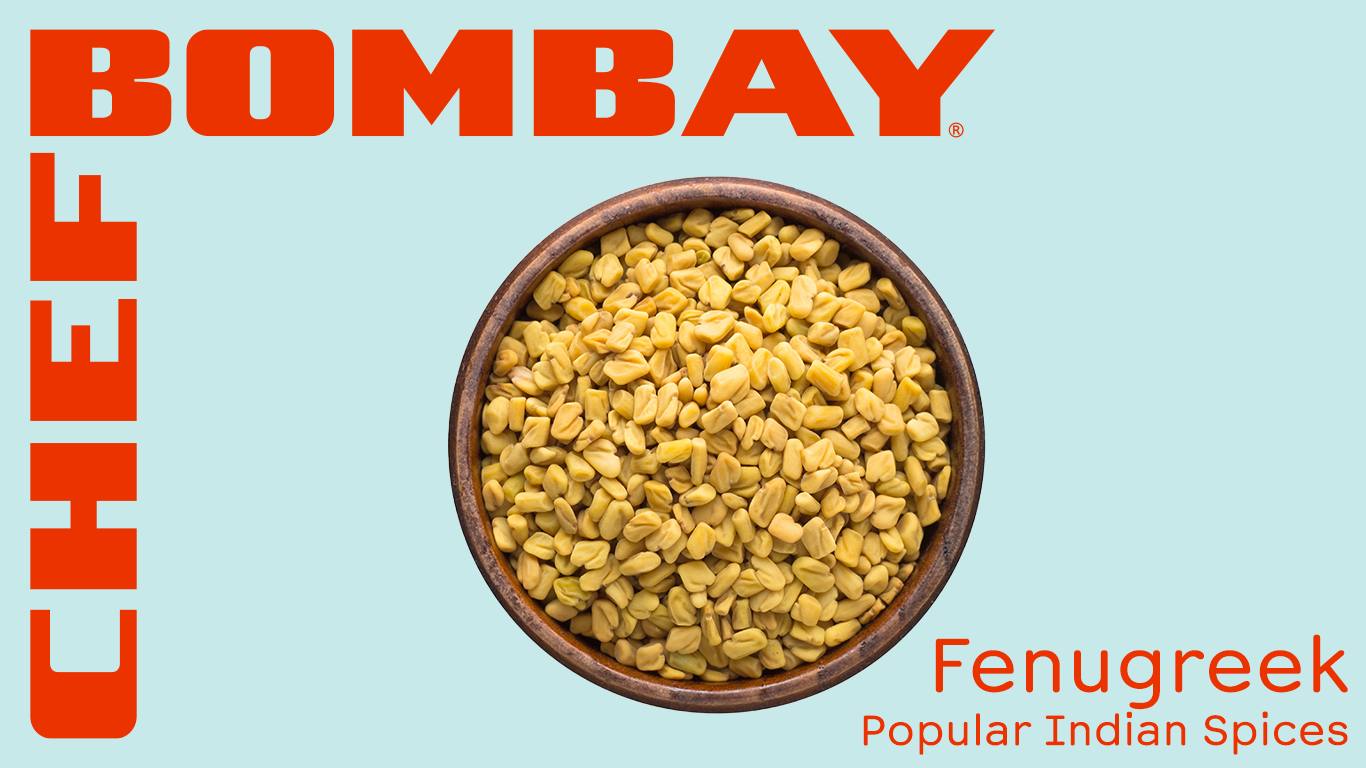
Fenugreek
Fenugreek seeds add a nice flavor to dishes. These small, yellow-brown seeds are commonly used in dishes like curries, dals, and chutneys to add a slightly bitter, nutty taste. They are often roasted to enhance their flavor before being added to dishes.
One popular dish that incorporates fenugreek seeds is methi chicken, a fragrant and flavorful chicken curry that uses fresh fenugreek leaves as well as the seeds. The seeds are toasted and ground into a powder before being added to the curry to give it a depth of flavor.
Fenugreek is also used in the popular Indian dish, aloo methi, which is a vegetarian dish made with potatoes and fresh fenugreek leaves. The dish is typically seasoned with cumin, coriander, and turmeric and is a staple in many households in India.
Fenugreek seeds are also believed to have a few health benefits. They are rich in fiber, protein, and vitamins, and are thought to have antioxidant and anti-inflammatory properties. Fenugreek seeds may also help improve blood sugar control and reduce cholesterol levels.
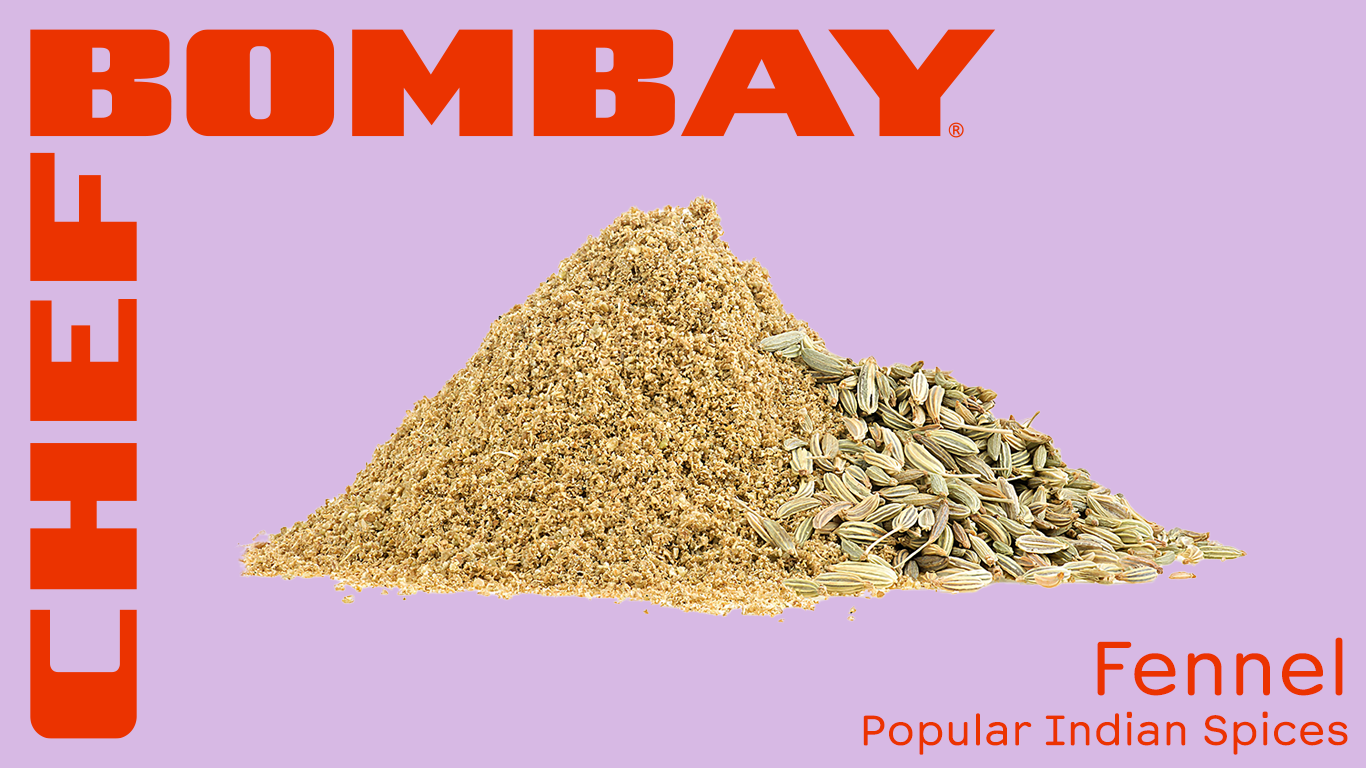
Fennel
Fennel seeds are a versatile spice widely used in Indian cuisine. They are popular in vegetarian dishes like saag and dal, adding a sweet and licorice-like flavor to the dish. Fennel seeds are also commonly used to flavor meat dishes like lamb or chicken curries, where their aromatic flavor complements the richness of the meat.
Apart from its culinary uses, fennel seeds are also known for their digestive benefits. They can be brewed into a soothing tea that may help relieve bloating and indigestion. The tea is made by steeping fennel seeds in hot water and can be consumed after a meal to aid in digestion. Overall, fennel seeds are a versatile and healthy spice that can be used in a variety of dishes and preparations.
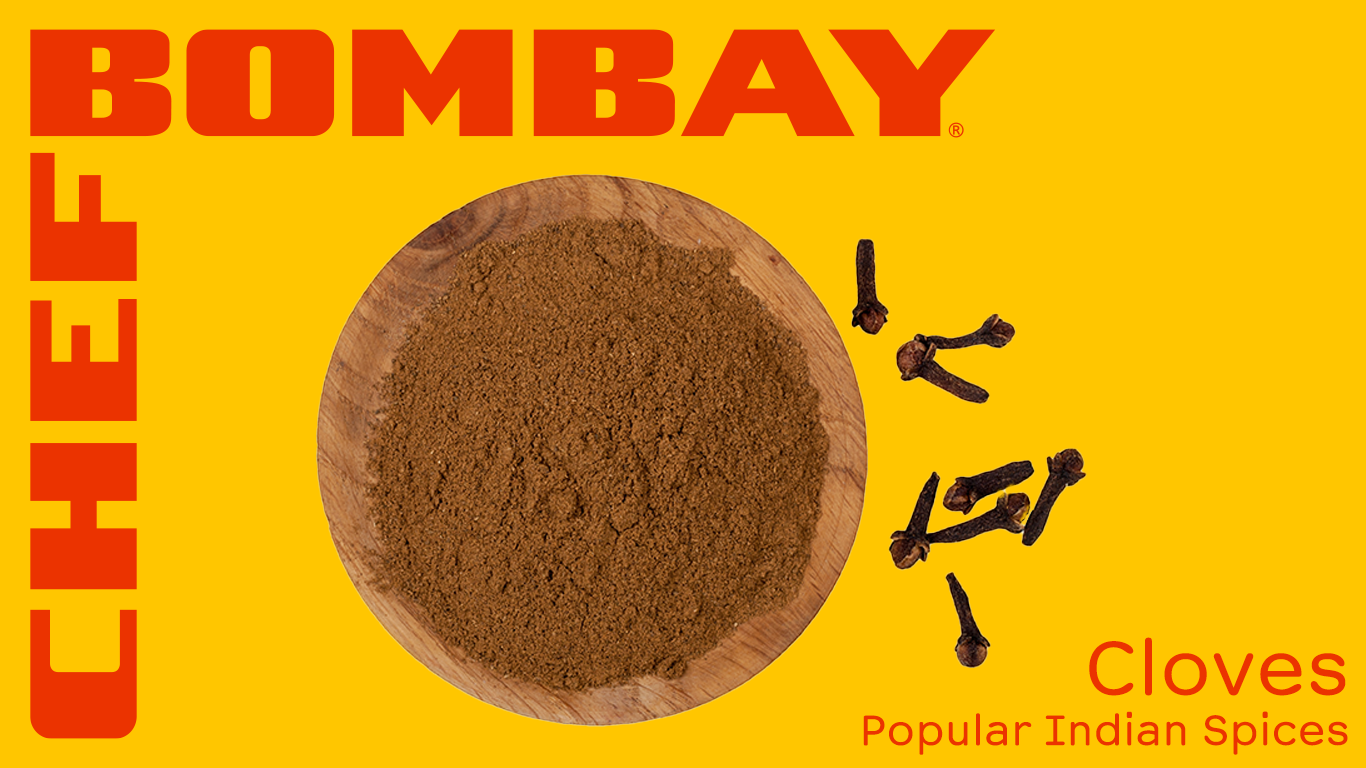
Cloves
Cloves are a highly aromatic spice used in Indian cuisine, from savory curries to sweet desserts. They are often used to flavor rice dishes like pulao and biryani and are also used in spice blends like garam masala. Cloves are also used in Palak Paneer.
In addition to their unique and warming flavor, cloves have been shown to have powerful antioxidant properties that may help to protect the body against damage from harmful free radicals. In particular, research suggests that the antioxidants in cloves may help to support liver function by reducing oxidative stress and inflammation.
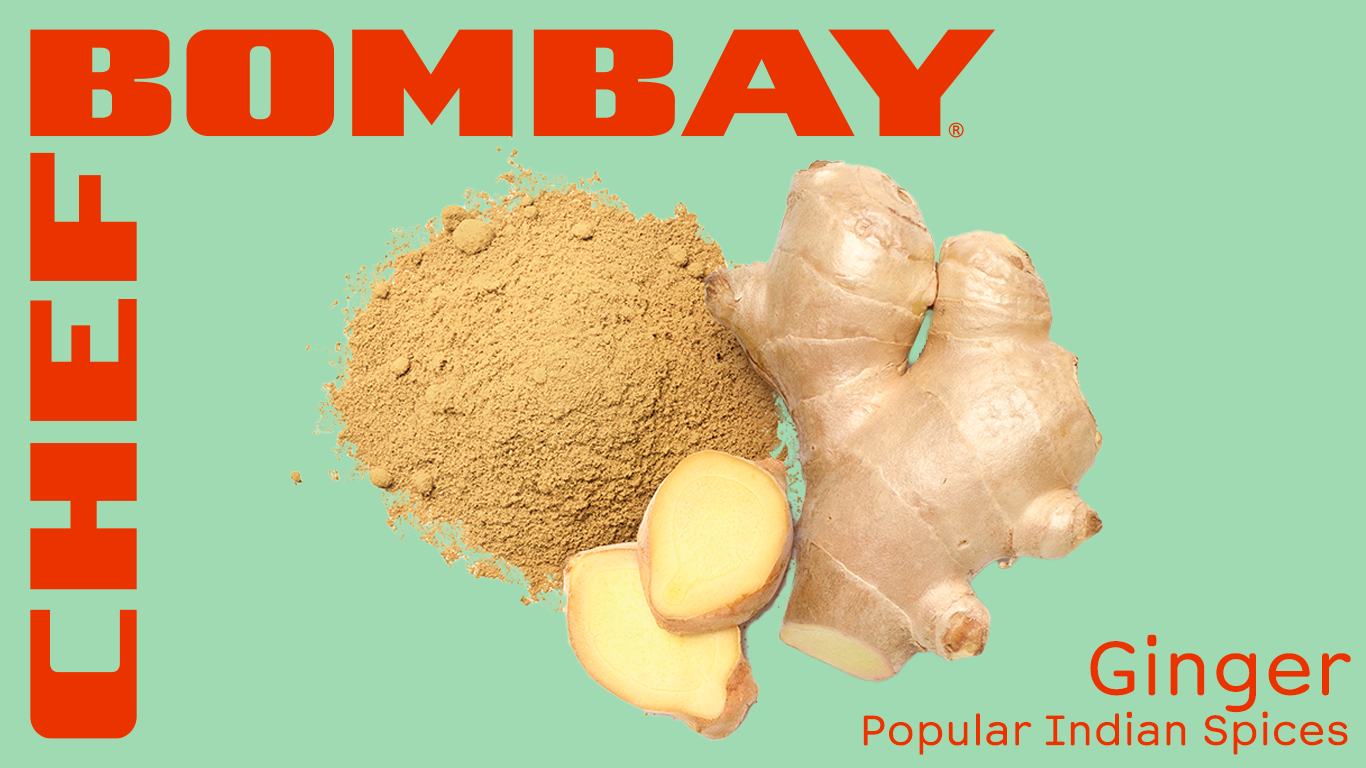
Ginger
Ginger is a common spice used in Indian cuisine and is used in dishes like curries, soups, and teas. Ginger can be found in Chef Bombay's Beef Vindaloo dinner entree. In addition, it can be found in many sweet dishes and drinks. A common drink that ginger can be found in is Panagam.
Ginger has anti-inflammatory properties and may help relieve nausea, reduce muscle pain, and lower blood sugar levels.
These are just a few examples of the popular Indian spices used in Indian cuisine and their health benefits. By incorporating these spices into your cooking, or buying frozen Indian meals like Chef Bombay's that are made with some of these species, you can add flavor and nutrition to your meals. Use Chef Bombay's store finder to find a grocer near you.
